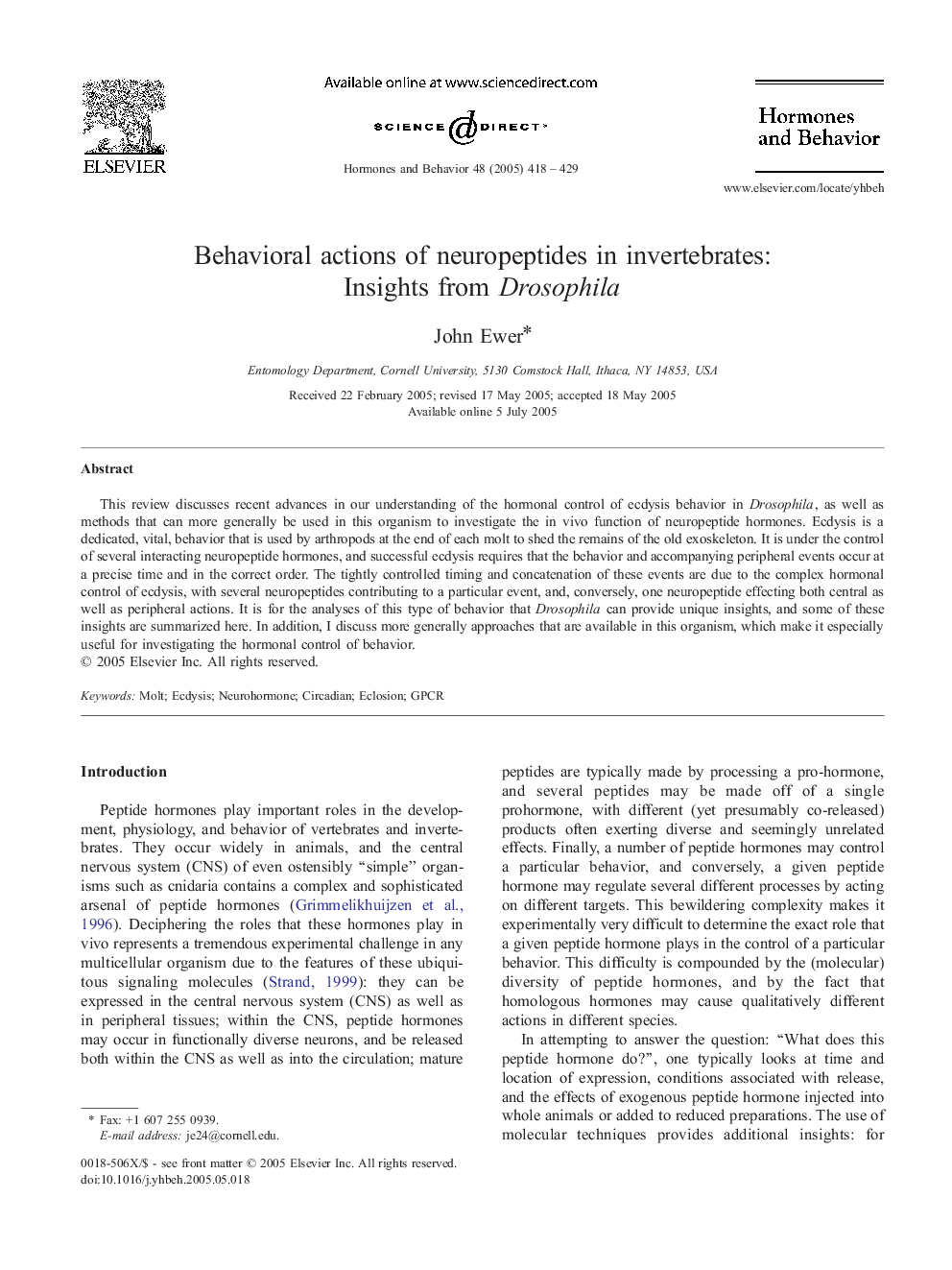| Article ID | Journal | Published Year | Pages | File Type |
|---|---|---|---|---|
| 10300736 | Hormones and Behavior | 2005 | 12 Pages |
Abstract
This review discusses recent advances in our understanding of the hormonal control of ecdysis behavior in Drosophila, as well as methods that can more generally be used in this organism to investigate the in vivo function of neuropeptide hormones. Ecdysis is a dedicated, vital, behavior that is used by arthropods at the end of each molt to shed the remains of the old exoskeleton. It is under the control of several interacting neuropeptide hormones, and successful ecdysis requires that the behavior and accompanying peripheral events occur at a precise time and in the correct order. The tightly controlled timing and concatenation of these events are due to the complex hormonal control of ecdysis, with several neuropeptides contributing to a particular event, and, conversely, one neuropeptide effecting both central as well as peripheral actions. It is for the analyses of this type of behavior that Drosophila can provide unique insights, and some of these insights are summarized here. In addition, I discuss more generally approaches that are available in this organism, which make it especially useful for investigating the hormonal control of behavior.
Related Topics
Life Sciences
Biochemistry, Genetics and Molecular Biology
Endocrinology
Authors
John Ewer,
